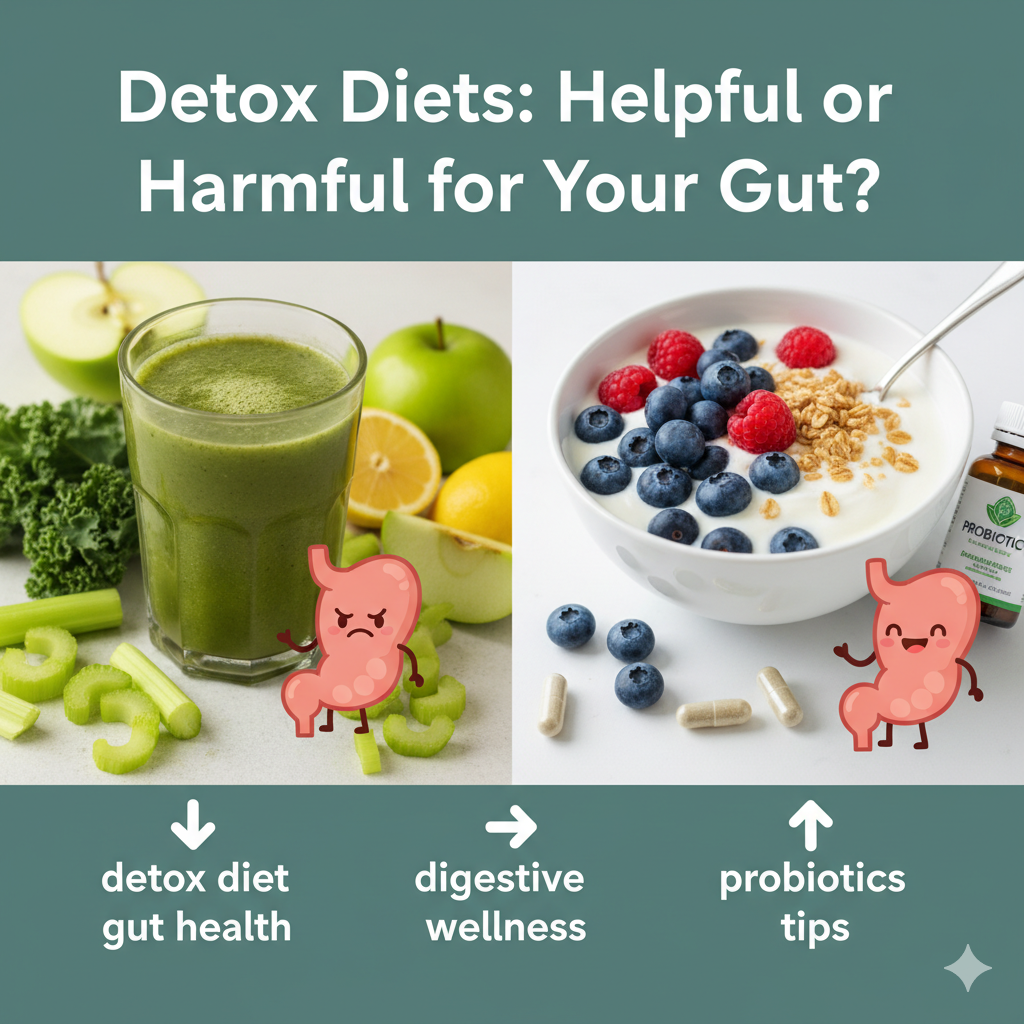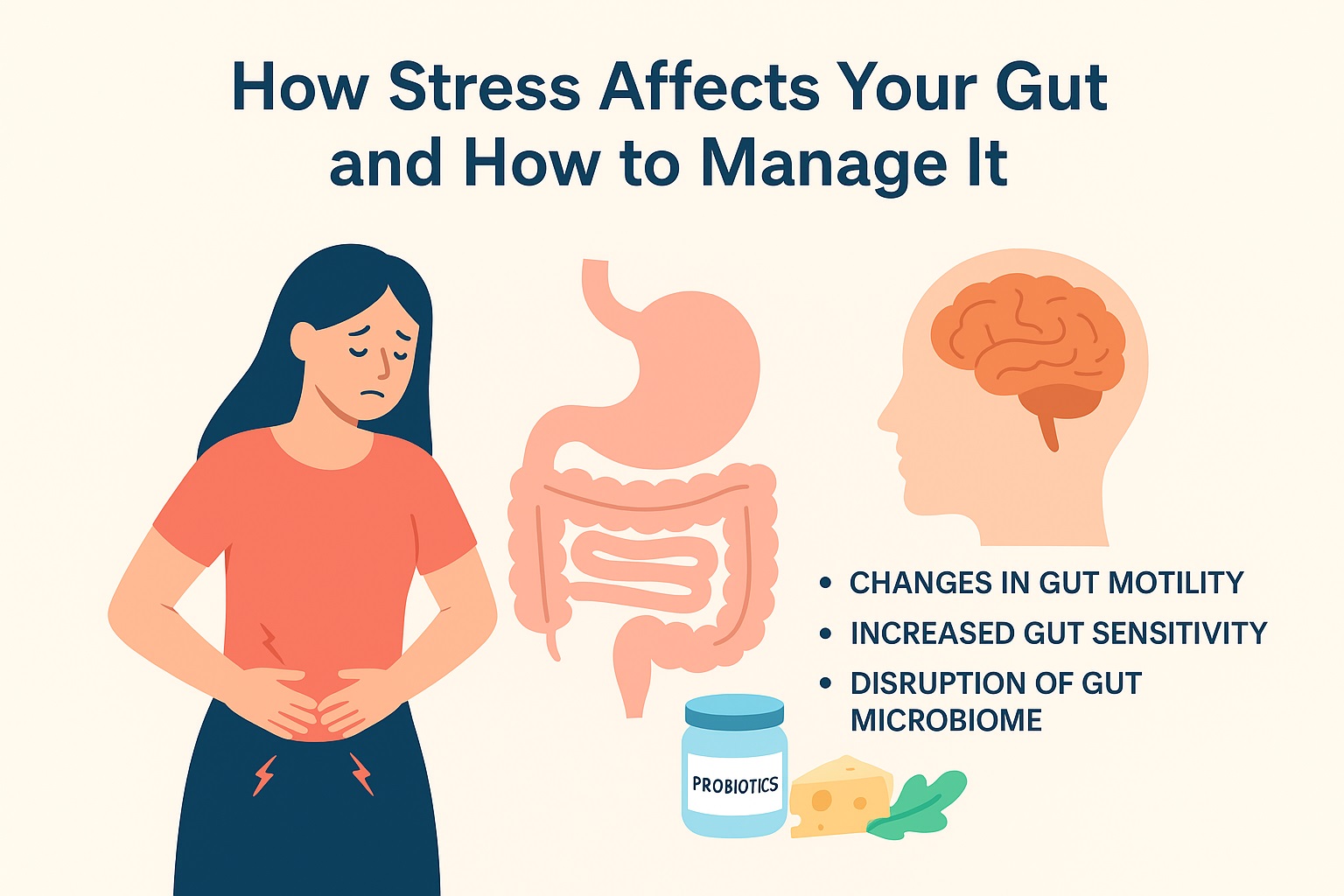Your gut is more than just a digestion center—it’s a powerhouse that influences your immune system, mental health, energy levels, and overall wellness. A balanced gut helps you absorb nutrients effectively, fight off harmful bacteria, and maintain steady energy throughout the day.
But modern lifestyles—fast food, stress, lack of sleep, and too much sitting—can disrupt the delicate balance of your gut microbiome. The good news is that small daily habits can strengthen your digestive system and create long-term health benefits.
Why Gut Health Matters
The gut microbiome is home to trillions of bacteria, fungi, and microorganisms. These tiny organisms help:
- Break down food and absorb nutrients.
- Produce vitamins like B12 and K.
- Strengthen the immune system.
- Regulate mood through the gut-brain connection.
- Reduce inflammation and protect against disease.
When your gut microbiome is out of balance (a condition called dysbiosis), you may experience:
- Bloating and constipation.
- Food sensitivities.
- Fatigue and poor sleep.
- Skin problems like acne or eczema.
- Weakened immunity.
This is why daily gut habits are essential—they keep your digestive system strong and resilient.
10 Daily Habits for a Healthy Gut
1. Start the Day with Hydration
Before coffee or breakfast, drink a glass of water. Hydration supports digestion by keeping food moving through your intestines and preventing constipation.
Tip: Add lemon for extra vitamin C and digestive stimulation.
2. Eat a Fiber-Rich Breakfast
Fiber feeds beneficial bacteria in your gut. A high-fiber breakfast sets the tone for a balanced microbiome.
Examples: Oats with berries, chia seed pudding, or whole-grain toast with avocado.
3. Incorporate Probiotic Foods
Probiotics are “good bacteria” that replenish your gut. Regularly eating probiotic-rich foods helps maintain a balanced microbiome.
Options include:
- Yogurt or kefir.
- Sauerkraut or kimchi.
- Miso or tempeh.
- Kombucha.
If food sources aren’t always available, a daily probiotic supplement can be helpful.
4. Eat Prebiotics Every Day
Prebiotics are fibers that feed probiotics. Without prebiotics, good bacteria struggle to survive.
Prebiotic-rich foods: Bananas, onions, garlic, asparagus, oats, flaxseeds.
5. Move Your Body
Exercise stimulates gut motility and supports microbial diversity. Even light activity like walking improves digestion.
Aim for:
- 30 minutes of moderate exercise daily.
- Stretching or yoga to ease bloating and gas.
6. Practice Mindful Eating
Eating too fast leads to poor digestion. Mindful eating allows your body to properly process food.
Steps to try:
- Chew thoroughly.
- Put down utensils between bites.
- Avoid eating while distracted (like scrolling your phone).
7. Manage Stress
Stress triggers the release of cortisol, which disrupts digestion and weakens gut defenses. Daily relaxation lowers this impact.
Simple stress relief practices:
- Meditation or deep breathing.
- Journaling.
- Nature walks.
- Listening to calming music.
8. Prioritize Quality Sleep
Your gut has its own circadian rhythm. Poor sleep disrupts this balance, increasing inflammation and cravings.
Sleep-friendly habits:
- Go to bed and wake up at the same time daily.
- Limit screens 1 hour before bed.
- Keep your room cool, dark, and quiet.
9. Stay Consistent with Meals
Eating at irregular times stresses your gut. Consistency helps regulate digestive enzymes and gut rhythm.
Tip: Aim for 3 balanced meals with healthy snacks if needed, rather than skipping meals or eating late at night.
10. Limit Processed Foods and Sugar
Processed foods and excess sugar feed harmful bacteria in the gut. Over time, this can cause inflammation and dysbiosis.
Better choices:
- Whole, unprocessed meals.
- Natural sweeteners like honey or dates in moderation.
- Cooking with olive oil, avocado, or coconut oil instead of trans fats.
A Sample Daily Gut-Friendly Routine
Here’s an example of how these habits can fit into your day:
Morning
- Drink lemon water.
- Eat overnight oats with chia seeds, berries, and kefir.
- Take a 15-minute walk before work.
Afternoon
- Lunch: Quinoa bowl with grilled chicken, avocado, and sauerkraut.
- Mindful eating—no phone or laptop.
- 10 deep breaths after eating to relax the gut.
Evening
- Snack: Apple with almond butter (fiber + prebiotic boost).
- Dinner: Salmon with roasted veggies and garlic.
- 20 minutes of yoga or stretching.
- Screen-free bedtime routine with herbal tea.
Probiotics Lifestyle: Making It Work
Instead of treating probiotics as a one-time fix, integrate them into your lifestyle:
- Rotate between probiotic foods to diversify bacteria.
- Pair probiotics with prebiotics for maximum effect.
- Stay consistent—gut bacteria thrive on regular nourishment.
Conclusion
Your gut is the foundation of your health, and supporting it doesn’t require drastic changes. By adopting simple daily habits—hydration, fiber, probiotics, exercise, stress management, and quality sleep—you can build a strong microbiome that protects you from digestive issues and boosts overall wellness.
Think of your gut as a garden: with consistent care, the right nutrients, and balance, it will flourish and keep you thriving every day.





“I really enjoyed reading this article! I liked how you emphasized the importance of small daily habits like staying hydrated, eating more fiber, and managing stress. It’s true that these simple steps can make a big difference in gut health over time. I’ll definitely try to implement these practices more consistently.”